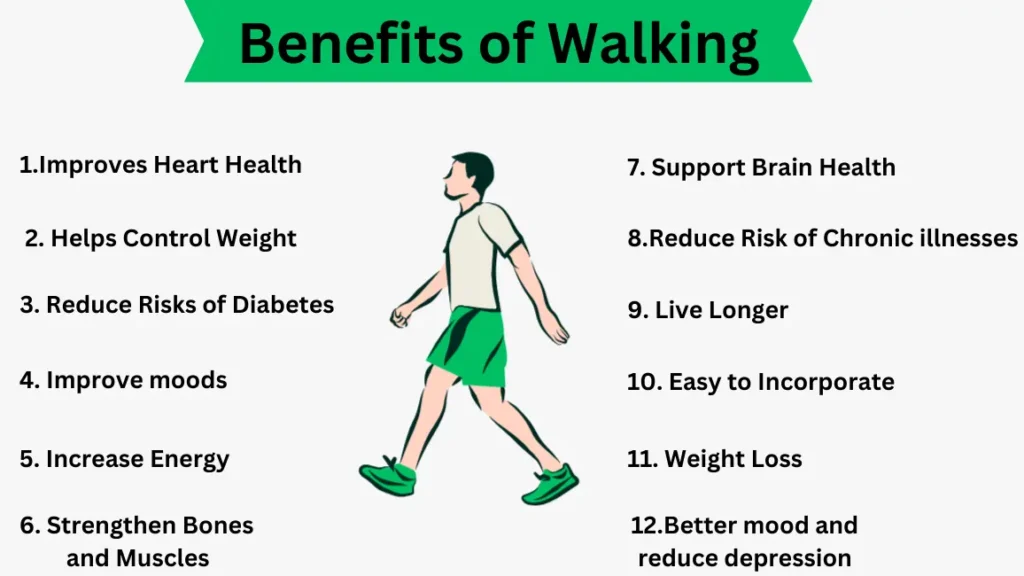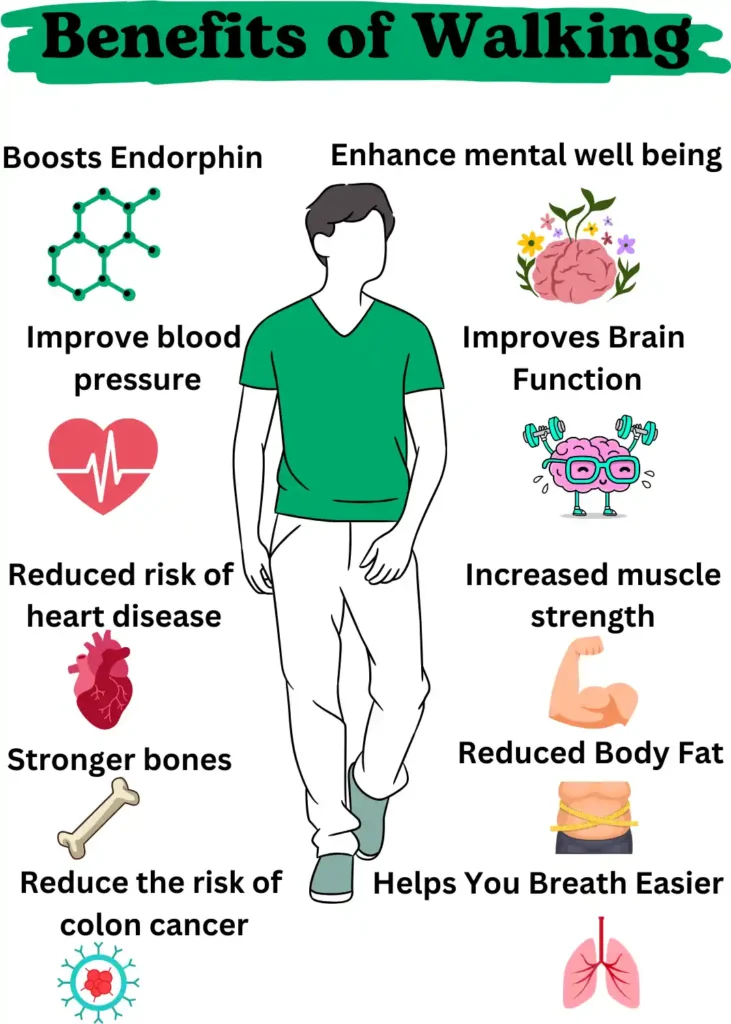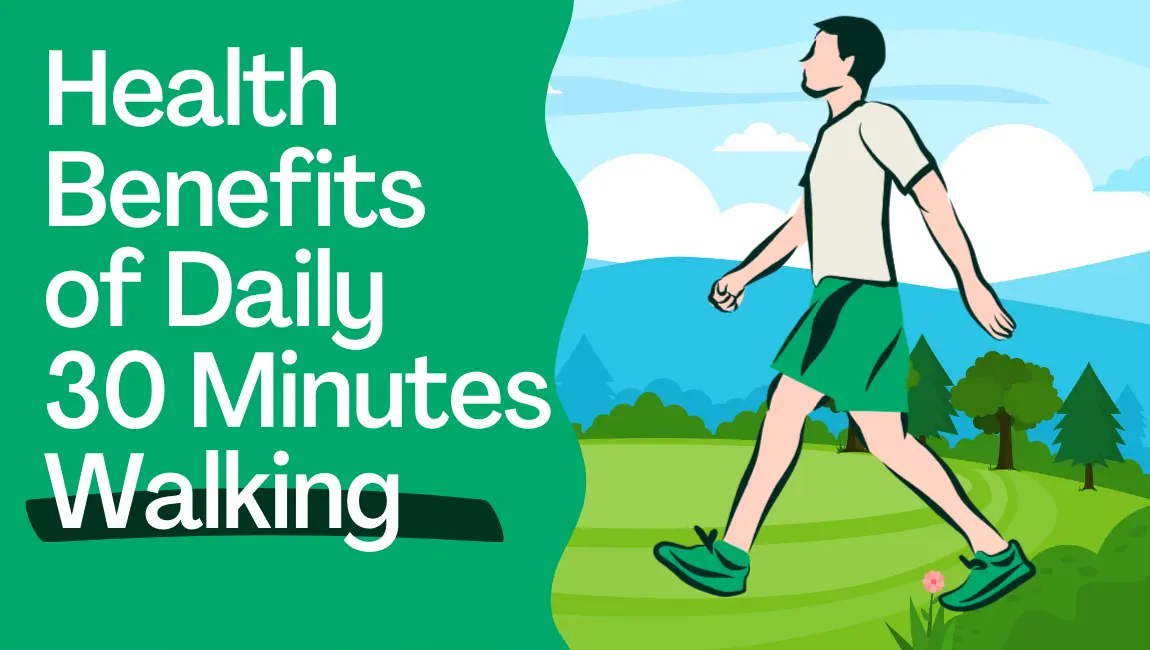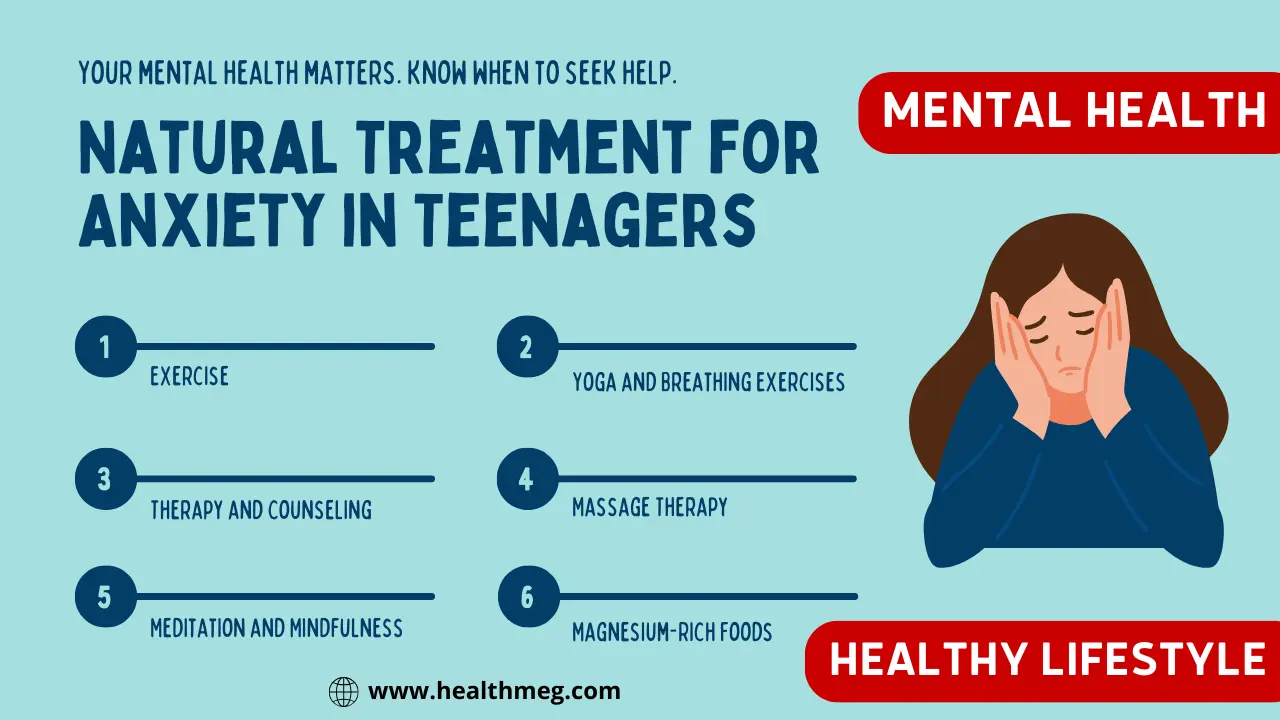Are you looking for a simple yet highly effective way to boost your health and well-being? Have you ever wondered about the numerous benefits of walking 30 minutes a day? Curious about how to kickstart a walking routine or the most significant health advantages you stand to gain? We’ll examine the amazing advantages of walking for just 30 min a day in this post. We’ll also provide you helpful advice on how to begin a walking routine so you can take advantage of the many health advantages that this easily accessible exercise has to offer. So, lace up your sneakers and let’s take a step toward a healthier, happier you!
Do read the People Also Ask (FAQs) about this topic.
Introduction
People of all ages and fitness levels can benefit from walking, which is one of the most accessible and easy kinds of exercise. It has several health advantages, is practically always possible, and doesn’t require any specialized equipment. Merely 30 min of daily walking can enhance overall well-being, lower the risk of chronic diseases, and improve mental and physical health.
Walking for 30 min a day has been shown in several studies to lower blood pressure and cholesterol, increase cardiovascular fitness, and minimize the risk of heart attack and disease. In addition to lowering (reducing) the risk of obesity and improving insulin sensitivity, walking helps people maintain a healthy weight. Stress, anxiety and depression are some of the Symptoms that are reduced (lowered) by walking and provide a lot of advantages for mental health and physical health.
This post will address some Frequently asked questions regarding walking, go through the many advantages of walking for 30 min a day, and offer advice on making the most of your walking regimen. By the end of this article, You’ll know more about how walking can enhance your health and well-being.
Key Takeaways
- Daily walking for thirty min can enhance general health and lower the risk of chronic illnesses.
- Walking lowers (reduces) the risk of depression and heart disease, among other physical and mental health benefits.
- Including walking in your daily routine is a simple and convenient approach to enhancing your well-being.
Benefits of Walking 30 Minutes a Day

Walking is one of the simplest forms of exercise, yet it provides a wealth of health benefits. With just 30 min of brisk walking a day, you can reduce your risk of chronic illnesses, improve your overall well-being, and boost your energy levels. In this article, we’ll explore the top reasons you should aim for 30 min of daily walking and how to get the most out of your walks. The following are the benefits of walking for 30 min a day:-
- Improves Heart Health
- Helps Control Weight
- Reduces Risk of Diabetes
- Improves Mood
- Increases Energy
- Strengthens Bones and Muscles
- Supports Brain Health
- Reduces the risk of chronic illnesses
- Live longer
- Easy to incorporate
1. Improves Heart Health
One of the most significant benefits of walking 30 min per day is reducing your risk for heart disease, heart attack and stroke. Regular, brisk walking keeps your heart strong, reduces blood pressure and cholesterol, and improves circulation. Walking helps arteries retain their elasticity so they can effectively pump blood throughout the body. Studies show that adults who walk just 30 min a day have a 20% lower risk of heart disease compared to more sedentary adults.
2. Helps Control Weight (Burn Calories)
Adding a 30-minute walk to your daily routine supports a healthy weight. Walking at a brisk pace for 30 min can burn around 150 calories, which adds up over time. The physical activity also builds metabolism-boosting muscle mass while decreasing appetite. This combination helps you lose excess fat and maintain a healthy weight. Walking after meals is especially effective for controlling blood sugar and insulin spikes that contribute to fat storage.
3. Reduces Risk of Diabetes
Physical activity is essential for preventing and managing type 2 diabetes. Walking every day can help control blood sugar levels and increase insulin sensitivity. Studies demonstrate that people who walk briskly for at least 30 min per day have a substantially lower risk of developing type 2 diabetes. Walking also prevents complications for those already living with diabetes.
4. Improves Mood
A daily 30-minute walk can significantly boost mental health. Walking releases feel-good endorphins that reduce anxiety, elevate mood, and increase self-esteem. Walking outdoors exposes you to nature, fresh air and sunlight, which provide additional mood-lifting benefits. Social walking with a friend adds fun companionship. Regular, brisk walks can also help relieve depression.
Now if we are talking about anxiety issues, You can check out these Natural Treatment for Anxiety issues.
5. Increases Energy
While exercise requires exerting energy, regular walking increases your energy levels and reduces fatigue. The increased blood and oxygen circulation provided by daily walking delivers nutrients and oxygen to cells more effectively. Your muscles also become more efficient at using oxygen. You may feel tired after more strenuous workouts, but a moderate 30-minute walk should leave you feeling energized.
6. Strengthens Bones and Muscles
The motion of walking strengthens bones and muscles throughout your body without stressing joints. Daily walks stimulate bone-building osteoblasts, increasing bone mineral density and reducing the risk of osteoporosis. Walking engages all the major muscle groups in your lower body. Toning leg, glute and core muscles make everyday activities like lifting heavy objects easier. As an aerobic activity, walking also builds stronger heart and lung muscles.
7. Supports Brain Health
Emerging research shows walking benefits brain health and cognition. In studies, older adults who walked at least 30 min per day had increased grey matter volume in areas involved in memory and decision-making. Walking may also prevent cognitive decline and reduce the risk of neurodegenerative diseases like Alzheimer’s. Chemicals released during exercise support neuron growth in the hippocampus, improving memory and learning.
8. Reduces the risk of chronic illnesses
Walking helps manage conditions like heart disease, high blood pressure, and type 2 diabetes. It keeps your heart strong, lowers blood pressure, and improves blood sugar control.
9. Live longer
Studies show walking provides longevity benefits and reduces your risk of early death. Walking 30 min per day can extend your lifespan.
10. Easy to incorporate
Walking is convenient and free! You can walk anywhere without any special skills, equipment, or training. Achieving 30 min is easy to fit into your daily schedule.
How to Start a Walking Routine

If you currently live a sedentary lifestyle, the thought of walking for 30 min straight may seem daunting. But starting a new walking routine is very doable when you take the right approach. Follow these tips:
- Get your doctor’s okay – Check with your doctor before significantly increasing your activity level, especially if you have chronic health conditions.
- Start slow – Begin with just 5-10 min of walking at a time and gradually increase your duration. Give your body time to adapt to avoid overdoing it. Build up to 30 min.
- Walk briskly – Moderate intensity (like a brisk walk) maximizes benefits. Aim for a pace of 3-4 mph. Use an activity tracker to monitor.
- Buy supportive shoes – Properly fitted, cushioned walking shoes reduce joint pain and discomfort so you can walk farther and longer. Replace shoes every 300-500 miles.
- Listen to music or podcasts – Make walks enjoyable by listening to upbeat music, an audiobook, or an entertaining podcast to distract you from fatigue or boredom.
- Find scenic routes – Walk somewhere with nice scenery to make the time pass quickly. Try parks, trails, beaches, or other attractive locations.
- Join a walking group – Having companionship and social support makes walks more fun. Join a walking club or walk with friends or family.
- Keep a log – Record your walks to track progress. Note distance, time, route, etc. Logs are motivating and help you set and achieve goals.
- Walk after meals – The perfect time to walk is 10-15 min after eating. Walking helps control blood sugar and burn extra calories.
- Make it a habit – Schedule your walks and treat them like any other non-negotiable appointment to ensure you stick with your routine.
The Most Significant Health Benefits of Walking 30 Minutes per Day

From lowering your risk of heart disease and diabetes to strengthening your bones and improving your mood, walking daily provides far-reaching health benefits from head to toe. Here’s an in-depth look at some of the top ways it improves your physical and mental health:
- Heart Health
- Stronger Bones and Muscles
- Better Mood and Reduced Anxiety/Depression
- Increased Energy and Reduced Fatigue
- Weight Loss
1. Heart Health
Many studies confirm that walking for 30 min 5 days per week significantly reduces your chances of heart disease. Brisk walking lowers many major heart disease risk factors:
- Reduces LDL “bad” cholesterol
- Lowers high blood pressure
- Helps manage blood sugar and insulin resistance
- Helps achieve and maintain a healthy weight
- Strengthens the heart muscle
- Improves circulation and blood flow
2. Stronger Bones and Muscles
The impact of walking strengthens bones in your hips and legs while the movement builds stronger leg muscles. This helps prevent osteoporosis and age-related muscle loss that can lead to fractures and disability. Regular brisk walks help maintain:
- Hip and spine bone mineral density
- Overall bone strength to prevent fractures
- Muscle mass to keep legs strong and functional
- Joint flexibility to help prevent arthritis
3. Better Mood and Reduced Anxiety/Depression
Walking releases feel-good endorphins and other mood-boosting neurotransmitters like serotonin and dopamine. Being in nature and getting sunlight also lifts your mood. Walking daily helps:
- Reduce stress and tension
- Alleviate anxiety and worry
- Boost self-esteem
- Ease symptoms of depression
- Improve sleep which stabilizes mood
4. Increased Energy and Reduced Fatigue
Many people feel too tired to exercise, but walking boosts your energy. Improved circulation delivers more oxygen and nutrients that reduce fatigue. Daily walking helps:
- Increase blood and oxygen flow
- Reduce muscle tiredness and weakness
- Combat daytime drowsiness and “hitting a wall”
- Lessen joint pain that can cause fatigue
- Boost stamina so you feel less tired
5. Weight Loss
Brisk walking burns calories, allowing you to lose unwanted pounds and belly fat. And building muscle through walking boosts your metabolism so you burn more calories 24/7. Walking 30 min a day can help you:
- Burn 150-200 calories per session
- Lose 1-2 pounds per month (burn 500 calories/day)
- Balance blood sugar and appetite hormones
- Build metabolism-boosting muscle mass
Many people follow a cardboard diet for weight loss. Is this cardboard diet good for your health? Let’s find it out here – Cardboard Diet: Eating Danger for Weight Loss
Conclusion
Making walking part of your daily routine provides tremendous short and long-term health and wellness benefits. It requires no special skills or equipment, can fit into any schedule, and can be done anywhere. Start gradually and use tools like activity trackers and walking logs to monitor your progress. Soon you’ll be enjoying better health, more energy, an improved mood, and reaching your fitness goals.
People Also Ask (FAQs)
Q. Can I lose weight by walking 30 min every day?
A. Losing weight can be achieved by walking for thirty min each day. Walking quickly can help you reach a calorie deficit and burn calories, claims Verywell Fit. However, your food and other lifestyle choices will determine how much weight you lose.
Q. What happens if you walk 30 min every day?
A. Taking a daily 30-minute walk can offer several advantages. Shape claims that it can lessen (reduce) stress, enhance cardiovascular health, and decrease the chance of developing chronic illnesses like diabetes and heart disease.
Q. Is 30 min of walking a day enough?
A. Walking for 30 min every day can provide health benefits. Cleveland Clinic claims that it helps in lowering (reducing) blood pressure, strengthening the heart and increasing aerobic fitness. To reach weight loss goals, more exercise and food adjustments could be required.
Q. What is the best time to walk?
A. Schedules and personal preferences determine the ideal time to go for a walk. While some individuals love to walk in the evening to decompress, others prefer to walk in the morning to start their day. Tom’s Guide states that walking just after a meal can assist with blood sugar regulation.
Q. How soon will I see results from walking?
A. Individual characteristics like age, weight, and degree of fitness can all affect how walking works out. After beginning a walking regimen, Verywell Fit claims that benefits in cardiovascular health can be noticed in a matter of weeks. It might take longer, though, for bodily improvements like weight loss.
Q. What are the mental benefits of walking 30 min a day?
A. Walking for 30 min every day can have mental health benefits. Shape claims that it can help reduce (lower) stress levels, improve mood, and increase mindfulness.
Q. What are the benefits of walking for 1 hour a day?
A. Walking for 1 hour every day can provide additional health benefits. Cleveland Clinic claims that it can help improve bone density, reduce (lower) the risk of chronic diseases, and aid in weight loss.
Q. Does walking shape your body?
A. Walking may not significantly alter body shape, but it can help with posture and muscular toning. Strength training routines can assist in toning and sculpting the body, claims Verywell Fit.
References
- The American Heart Association:
- URL: https://www.heart.org
- This organization provides information on heart health, including the benefits of regular walking for cardiovascular fitness.
- The Mayo Clinic:
- URL: https://www.mayoclinic.org
- Mayo Clinic offers reliable health information, including articles on the health benefits of walking and fitness.
- WebMD:
- URL: https://www.webmd.com
- WebMD is a trusted source for health-related articles and can provide valuable information about the benefits of walking.
- The National Institute of Diabetes and Digestive and Kidney Diseases (NIDDK):
- URL: https://www.niddk.nih.gov
- NIDDK provides information about the impact of walking on weight control and diabetes management.
- The Harvard Health Blog (from Harvard Medical School):
- URL: https://www.health.harvard.edu/blog
- Harvard’s health blog often publishes articles related to the health benefits of exercise, including walking.
- Verywell Fit:
- URL: https://www.verywellfit.com
- Verywell Fit is a valuable resource for fitness and wellness information.
- Cleveland Clinic:
- URL: https://my.clevelandclinic.org/health
- Cleveland Clinic provides evidence-based health information, including articles on the benefits of walking.












